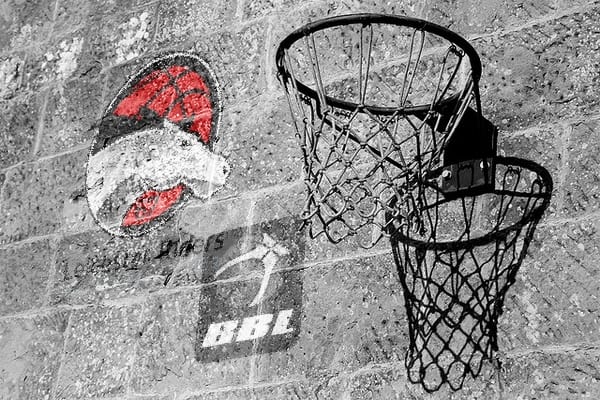No Durham doubts despite quiet summer so far
Whilst some BBL clubs are bowing out of the league and others are announcing new signings, the Durham Wildcats are both staying put and keeping their cards close to their chest on player movement.
“It’s more in the hands of the chairman than it is me, although I’ve obviously been creating leads,” said Wildcats head coach, Dave Elderkin, on the topic of forming a team for the 2013/14 season.
Even though the Wildcats showed significant improvement in their second year in the top flight, they started the off-season by losing guard, Keith Page, who completed a move to Manchester last month. Coach Elderkin though, has long maintained that he would never stop a player from leaving, especially not someone in Page’s position.
“The situation with Keith, bearing in mind when he came to us in the summer of 2012 he’d just gotten married, his wife lived in Manchester the entire season. In many ways he handled that really well. He was determined that he would use his study time to prepare himself for a teaching career. And I believe that he got an opportunity to do that in the Manchester area.
“At one point in time we did look to see if it was feasible to get him on a similar scheme in the Durham area and have him play for us for another year. But Keith and his wife had moved into a new home so the outcome was always going to be that he would return to that area.”
Although Page’s personal position was unique, his professional one was less so, with Page and five other Wildcats playing last season on one-year deals.
A single year contract for a player in the British Basketball League isn’t uncommon but does nothing for team continuity or player security and can ultimately prevent teams from building the type of team chemistry that has seen the Newcastle Eagles and Leicester Riders dominate in recent years.
Coach Elderkin understands that his situation at the Wildcats is a challenge (player recruitment comes largely from their partnership with the University) but is working on a solution.
“We have been looking at options of maybe two years, options of people working in the community while studying and playing,” explained Elderkin. “It’s a challenge matching everything up but there are some huge advantages: Being able to operate a budget within our means and
every one of our overseas guys, for their personal development, plays a role in the community.”
“I would accept that it’s frustrating from the coaches point of view; if a particular player who you want but who doesn’t want to study or somebody who desperately wants to study but isn’t quite what you want as a player. But over the last two years I think we’ve drawn more than even in terms of the positives of the Durham university partnership.”

